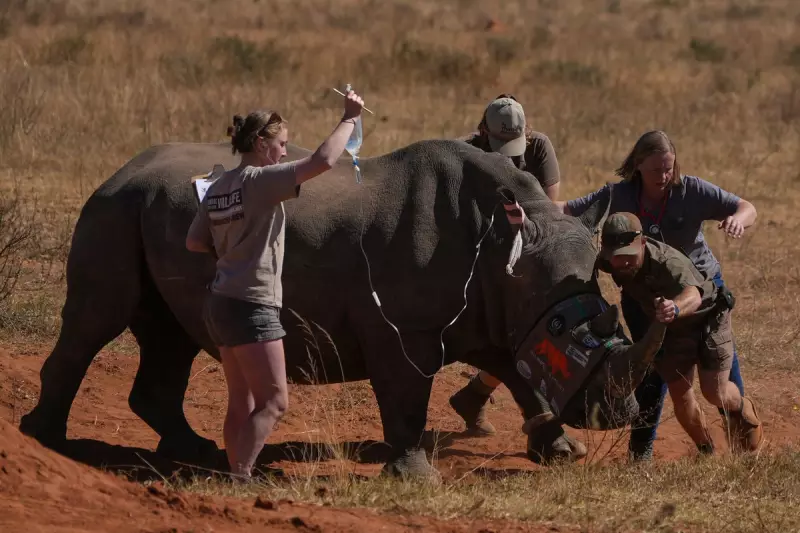
In an innovative bid to curb the rampant poaching of rhinos, South African researchers have begun injecting the animals' horns with radioactive isotopes. This revolutionary technique aims to make the horns toxic for human consumption, thereby deterring illegal wildlife trade.
A Desperate Measure for a Critical Situation
With rhino populations plummeting due to relentless poaching, conservationists have turned to science for solutions. The radioactive isotopes, while harmless to the rhinos, render their horns dangerous to humans—effectively destroying their black-market value.
How It Works
The process involves:
- Carefully drilling small holes into the rhino's horn
- Injecting minute quantities of radioactive material
- Sealing the holes with a special compound
"This makes the horn essentially poisonous," explains lead researcher Professor James Larkin. "Anyone attempting to consume powdered horn would face serious health risks."
The Poaching Epidemic
South Africa remains the epicenter of rhino poaching, with criminals slaughtering the animals for their horns which fetch astronomical prices in Asian markets. Despite increased security measures, poachers continue to devastate rhino populations.
Detection Benefits
The radioactive markers offer an additional advantage—they make the horns easier to detect at border crossings. Specialized scanning equipment can identify treated horns, helping authorities intercept illegal shipments.
Conservationists hope this bold strategy will turn the tide in the fight to protect these magnificent creatures from extinction.





